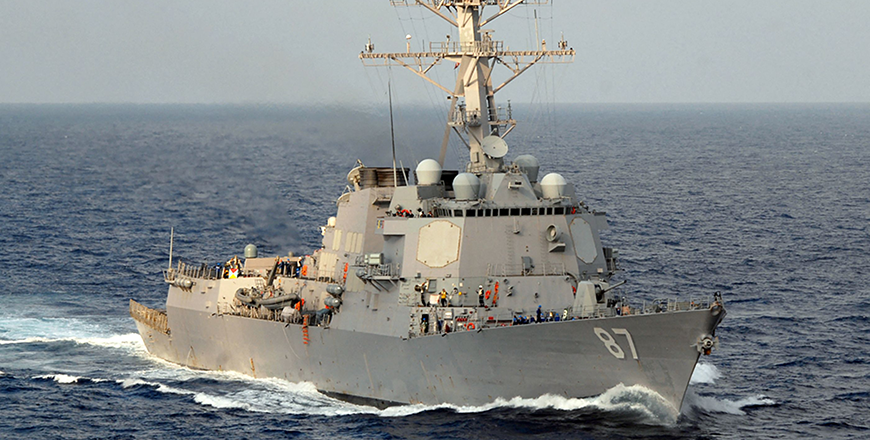You are here
Iran rejects Israel accusations over ship seized by Yemen rebels
By AFP - Nov 20,2023 - Last updated at Nov 20,2023
TEHRAN — Iran on Monday dismissed as "invalid" Israel's accusations that Yemen's Huthi rebels were acting on Tehran's "guidance" when they seized a Red Sea ship owned by an Israeli businessman.
The Iran-backed rebels in Yemen seized the Galaxy Leader on Sunday, days after they threatened to target Israeli vessels in the waterway over Israel's war with Hamas in the Gaza Strip.
The office of Israeli prime minister Benjamin Netanyahu said the ship "was hijacked with Iran guidance by the Yemenite Huthi militia".
On Monday, Iran's Foreign Ministry spokesman Nasser Kanani said the Israeli accusations were "invalid" and "projection meant to escape from the situation they are facing".
"We have repeatedly announced that the resistance groups in the region represent their countries and make decisions and act based on the interests of their countries," he said.
"The Zionist regime [Israel] cannot accept that it suffered a major defeat in Palestine and wants to find a justification for the defeat it suffered by accusing the Islamic Republic of Iran," Kanani added.
Yemen’s Iran-backed Houthi rebels said on Sunday that they had seized in the Red Sea a ship owned by an Israeli businessman and rerouted it to Yemen’s coast.
The vessel is operated by a Japanese firm, prompting Tokyo to intervene and “directly” approach the rebels.
The announcement came days after the rebel group threatened to target Israeli vessels in the waterway over Israel’s war with Hamas in the Gaza Strip.
Houthi military spokesman Yahya Saree said in a statement on X, formerly Twitter, that the rebels “seized an Israeli ship and took it to the Yemeni coast”.
Foreign Minister Yoko Kamikawa said Tokyo was “communicating with Israel, and in addition to directly approaching the Houthis, we are also urging Saudi Arabia, Oman, Iran and other countries concerned to strongly urge the Houthis for the early release of the vessel and crew members”.
Israel, Japan and the US have condemned the vessel’s seizure.
Nippon Yusen, also known as NYK Line of Japan, confirmed to AFP that it operated the Bahamas-flagged Galaxy Leader.
“We were notified from Galaxy Maritime in the UK... that Galaxy Leader, a car carrier we charter from the company, had been captured” while sailing near the coast of Hodeida.
It said it had set up a task team to gather information and to ensure the safety of the 25-strong crew.
Maritime security company Ambrey said “the vehicles carrier’s group owner is listed as Ray Car Carriers”, whose parent company belongs to Abraham “Rami” Ungar, an Israeli businessman.
Houthi “forces will continue to carry out military operations against the Israeli enemy until the aggression against Gaza stops and the ugly crimes... against our Palestinian brothers in Gaza and the West Bank stop”, Saree said.
A Yemeni maritime source said the Houthis had “seized a commercial vessel” and took it to the port of Salif in the coastal city of Hodeida, which the rebels control.
A US military official said the seizure of the vessel “is a flagrant violation of international law”.
“We demand the immediate release of the ship and its crew. We will consult with our allies and UN partners as to appropriate next steps,” the official said.
The Marine Traffic tracking site said the Galaxy Leader had “departed from Korfez, Turkey, and was on its way to Pipavav, India. Went offline on Saturday southwest of Jeddah, Saudi Arabia”.
Vital shipping route
On November 14, Houthi rebel leader Abdul Malik Al Houthi said the group was on the lookout for Israeli vessels in the commercially vital waters of the Red Sea, even those that did not have Israeli flags.
“Our eyes are open to constant monitoring and searching for any Israeli ship,” he said in a speech broadcast by the rebels’ Al Masirah TV station.
The Bab Al Mandab Strait, a narrow pass between Yemen and Djibouti at the foot of the Red Sea, is one of the world’s busiest shipping lanes, and carries about a fifth of global oil consumption.
The Houthis, declaring themselves part of the “axis of resistance” of Iran-affiliated groups, have launched a series of drone and missile strikes targeting Israel since October, following a surprise attack by Hamas militants on Israel.
Analysts have said the goal of the rebels, who control Yemen’s capital Sanaa and much of the country, is strategic rather than military as they seek regional and domestic legitimacy.
“The assertion that eight waves of Houthi missile and drone launches from Yemen failed to hit targets inside Israel might have influenced the decision to refocus on the Red Sea arena,” said Mohammed Al Basha, senior Middle East analyst for the US-based Navanti Group.
Related Articles
SOFIA — The crew of the Galaxy Leader cargo ship, captured by Yemen's Houthi rebels in November, are "safe and sound" and will return to Bul
DUBAI/WASHINGTON — Yemen's Houthi rebels claimed responsibility on Tuesday for a missile strike on a Norwegian-flagged tanker a day earlier
DUBAI — Two of the world's largest shipping firms, Maersk and Hapag-Lloyd, said on Friday they were suspending passage through a Red Sea str

















